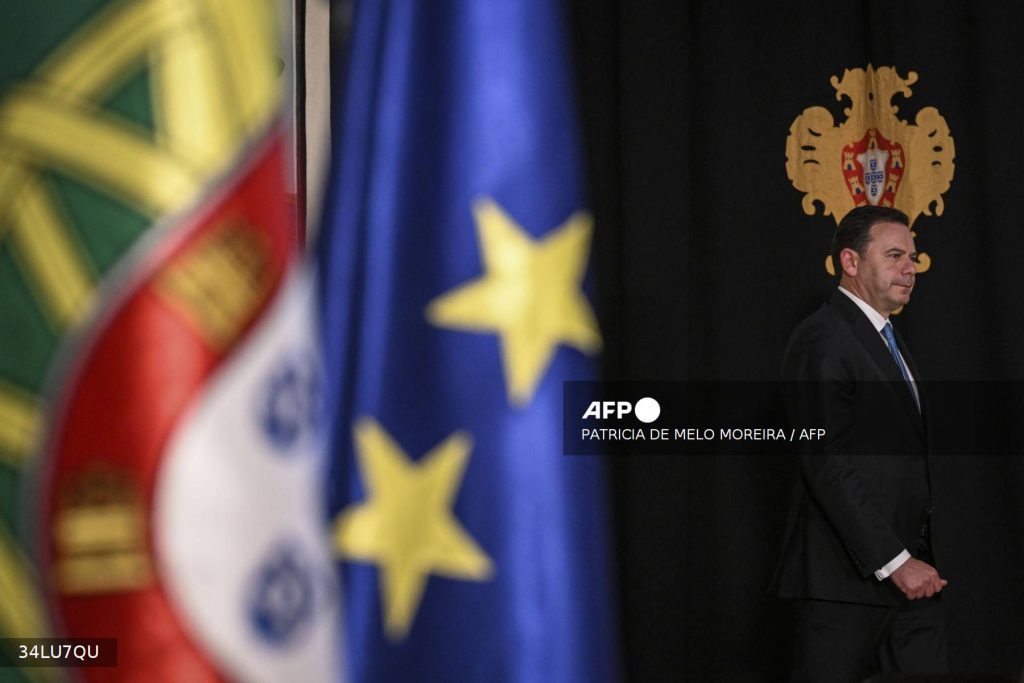Luis Montenegro, the leader of the centre-right, was named as the prime minister of Portugal on Wednesday night. However, he will need to create a coalition government and deal with an increasing far-right movement after his party's close win in the parliamentary elections.
The 51-year-old lawyer and experienced parliament member, Luis Montenegro, takes over from Antonio Costa of the Socialist Party, who has been in power since 2015.
His Democratic Alliance (AD) had promised during the campaign to increase economic growth by reducing taxes, and to improve the unreliable public health services and education, which have been affected by strikes from teachers and school workers over salaries.
Montenegro will announce his new government next Wednesday, and it is expected to start on April 2, as the newly elected leader stated after a meeting with President Marcelo Rebelo de Sousa.
Their meeting marked the conclusion of the process of appointing a new prime minister.
Montenegro's AD defeated the incumbent Socialist Party (PS) in the March 10 elections but only secured 79 seats, falling far short of a majority in the 230-seat parliament.
Even with the support of the small business-friendly Liberal Initiative (IL) party, the AD would still require the support of the anti-immigration party Chega to reach a majority of 116 seats in the assembly.
– Increase in far right –
The election was called after Costa, 62, surprisingly resigned in November following an influence-peddling investigation that involved a search of his official residence and the arrest of his chief of staff.
The PS came second in the elections, securing 28 percent of the vote and 78 seats in parliament.
Chega made significant gains, securing 50 seats after having only 12 in the previous election in 2022, solidifying its position in Portugal's political scenery.
However, Montenegro has rejected the idea of creating a coalition with Chega, stating that he plans to establish a minority government.
This week, Chega leader Andre Ventura cautioned against political instability if the AD persisted in rejecting a coalition, and threatened to oppose it if Montenegro refused to initiate negotiations.
– Financial negotiations –
The autumn deadline for agreeing on the state budget for 2025 will be Montenegro's first major challenge.
The new Socialist leader Pedro Nuno Santos has declared that his party would abstain from bringing down a centre-right minority government but warned that it would vote against its initial budget.
Santos mentioned on Tuesday that he was prepared to vote on a budget amendment to raise the wages of teachers, police officers, nurses, and court clerks, but stated that an overall favorable vote by the Socialist Party is 'practically impossible'.
Antonio Costa Pinto, a political scientist at the University of Lisbon's Institute of Social Sciences, informed AFP that Montenegro's new government will be 'obliged to negotiate because that is the fate of minority governments'.
However, he added that it is not necessarily destined to be an unstable government since 'none of the players have an interest in triggering a crisis'.
If a political deadlock occurs, President Rebelo de Sousa would mediate the discussions.
Outgoing Prime Minister Costa stated that there will be 'no change' to Portugal's foreign policy.
Costa stated at his latest meeting in Brussels that even Chega, unlike far-right parties in other European countries, has never opposed the European Union or taken advantage of any Eurosceptic sentiment.
Montenegro will also journey to Brussels to participate in a meeting of the European People’s Party on Thursday.
Recently, a union urged all journalists in Portugal to join a one-day strike due to low pay and job insecurity. The union called for all journalists in Portugal to participate in a one-day strike due to low wages and job insecurity., the first stoppage of its kind in 42 years.
AFP



